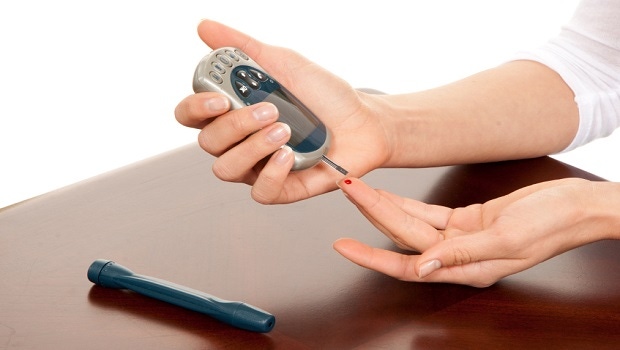Correct product positioning and less invasive blood sugar testing methods create an opportune time for supplements and functional foods aimed at managing blood glucose levels.
May 9, 2014

Blame your caveman relatives. Humans are hard-wired to love sugar. Ancient humans were never sure where the next meal would come from, so foods high in energy-rich fat and sugar could mean the difference between surviving the next famine and death. Modern man doesn’t have the same food availability worries, but does share the same genes and sugar cravings of our caveman ancestors.
But that natural desire for sweet foods can trip us up, and medical research shows high levels of blood sugar can lead to diabetes, an increased risk of heart attack, stroke, kidney failure and more. But even that doesn’t hint at the potential damage from high blood sugar levels. Recent medical research has established a link between high blood sugar and dementia.
A recent National Institutes of Health (NIH)-funded study found higher blood glucose levels (115 mg/dl and above) were tied to increased risk of dementia (N Engl J Med. 2013 Aug 8;369(6):540-8). The University of Washington study found that high blood sugar levels can damage the brain even among those that do not have diabetes, possibly by affecting blood vessels and blood flow to the brain.
As awareness of the risks rise, one would think the market for products that moderate blood sugar would grow. But that has not really happened, at least from a new products perspective. Blood sugar levels aren’t easily tracked, like body weight is. To measure blood sugar you have to take a blood sample, an invasive procedure that turns off those who do not have a medical necessity to track blood sugar levels. And that may be one reason why the market for blood sugar control products really has not taken off beyond a core market of diabetes sufferers.
Relatively few packaged products overtly claim to help manage blood sugar levels. And those that do typically reference other medical concerns such as weight management. SoLo GI Energy Bar is one example, a gluten-free, low glycemic energy bar from Canada that offers “an elegant solution for weight and blood sugar management." Blood sugar management is what the glycemic index is all about as it quantifies how much a carbohydrate-containing food is likely to raise blood sugar. But consumers have yet to rely on it. According to the Shopping for Health 2012 survey of Americans from the Food Marketing Institute (FMI) and Prevention magazine, just 10 percent of consumers said the glycemic index was of concern to them when they read product labels.
Weight management and blood sugar level control are dual benefits of Natural Factors PGX Daily Supplement Singles, a granulated supplement designed to mix with water, juice or food. Launched in 2013, the U.S. product claims to reduce appetite and lower the glycemic index, promoting healthy blood sugar levels. PGX® (from InovoBiologic Inc.) is a fiber complex derived from the konjac root.
Future developments in blood sugar control may come from ingredient innovations. Cinnamon has long been lauded for its blood sugar control benefits, but it is unusual to see it paired with rising supplement star turmeric as is the case with Healthee Organic Tumeric Drink with Cinnamon. This U.S. product is said to stabilize blood sugar levels and improve blood circulation. Green coffee also has potential. Spain’s Biocol Green Coffee Food Supplement is a natural drink with green coffee extract and birch that helps reduce the percentage of body fat, blood sugar levels and body weight.
Polyphenols and magnesium are other ingredients to watch. The two were paired up with Twinlab Blood Pressure Success, a new launch said to feature MegaNatural-BP (from Polyphenolics), a patented, clinically tested grape seed extract standardized to provide 90-percent polyphenols. This extract—combined with magnesium, hawthorn and hydrolysed milk casein—is claimed to help maintain existing blood pressure levels within a normal range as well as support vasodilation and circulation.
Yet to hit packaged foods, drinks or supplements are promising ingredients such as agavins, a natural sweetener from the agave plant that has been found to boost insulin production and lower blood sugar in animal models. Yacon powder and olive leaf extract are other ingredients with potential. Yacon, a potato-like root vegetable native to the Andes region of South America with prebiotic properties, shows promise. Olive leaves are rich in olive polyphenols, and a recent study performed on behalf of New Zealand-based Apimed Medical Honey found that olive leaf extract can help prevent or manage insulin sensitivity (PLoS One. 2013;8(3):e57622).
The strongest catalyst to future innovation in blood sugar management may come from the world of technology. Researchers at Springfield, MA-based Western New England University have just invented a breathalyzer-type device that can monitor blood glucose levels. This type of innovation could mesh nicely with wearable technology. Wristband products such as The Angel Sensor and Apple’s rumored iWatch band work in concert with smartphones to track health indicators, providing brand new platforms for blood sugar management.
Tom Vierhile ([email protected]) is the Innovation Insights Director for Datamonitor Consumer (datamonitorconsumer.com).
About the Author(s)
You May Also Like




.png?width=800&auto=webp&quality=80&disable=upscale)